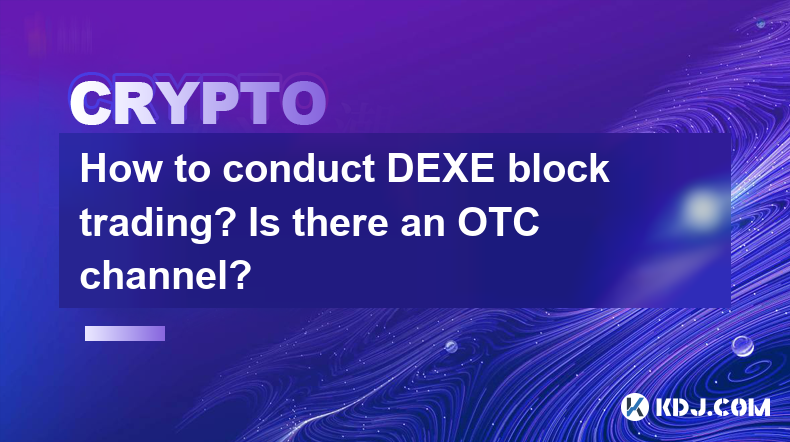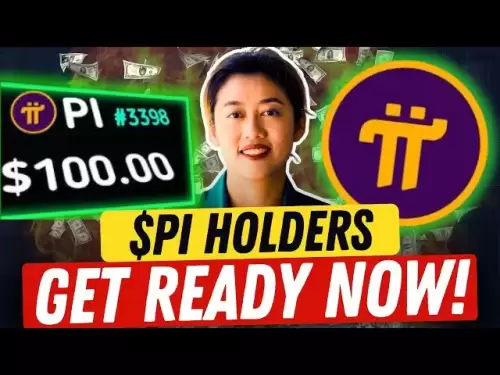-
 Bitcoin
Bitcoin $106,731.2224
-1.05% -
 Ethereum
Ethereum $2,444.9804
-1.20% -
 Tether USDt
Tether USDt $1.0003
0.01% -
 XRP
XRP $2.1882
0.09% -
 BNB
BNB $651.1435
-0.61% -
 Solana
Solana $148.3252
-2.09% -
 USDC
USDC $1.0000
0.01% -
 TRON
TRON $0.2787
0.55% -
 Dogecoin
Dogecoin $0.1598
-3.16% -
 Cardano
Cardano $0.5520
-2.43% -
 Hyperliquid
Hyperliquid $39.0960
-2.64% -
 Bitcoin Cash
Bitcoin Cash $516.9519
2.98% -
 Sui
Sui $2.7011
-2.95% -
 Chainlink
Chainlink $13.0582
-1.71% -
 UNUS SED LEO
UNUS SED LEO $8.9250
-2.53% -
 Stellar
Stellar $0.2359
-0.18% -
 Avalanche
Avalanche $17.3856
-3.73% -
 Toncoin
Toncoin $2.8095
-3.56% -
 Shiba Inu
Shiba Inu $0.0...01121
-1.95% -
 Litecoin
Litecoin $85.2795
-0.85% -
 Hedera
Hedera $0.1471
-2.15% -
 Monero
Monero $319.8004
1.12% -
 Dai
Dai $1.0001
0.01% -
 Ethena USDe
Ethena USDe $1.0001
0.02% -
 Bitget Token
Bitget Token $4.5344
-1.07% -
 Polkadot
Polkadot $3.3224
-2.96% -
 Uniswap
Uniswap $6.9697
-2.75% -
 Aave
Aave $266.1658
-2.25% -
 Pepe
Pepe $0.0...09414
-3.41% -
 Pi
Pi $0.4913
-3.29%
How to conduct DEXE block trading? Is there an OTC channel?
DEXE block trading allows large token trades without market impact, often using OTC channels for privacy and efficiency, but involves risks like counterparty failure.
May 04, 2025 at 05:35 am

How to Conduct DEXE Block Trading? Is There an OTC Channel?
DEXE block trading is a crucial aspect of the cryptocurrency ecosystem, particularly for traders and investors looking to execute large orders without significantly impacting the market price. This article will delve into the intricacies of conducting DEXE block trading, including the use of OTC (Over-The-Counter) channels. We will explore the steps involved, the benefits, and the potential risks associated with this trading method.
Understanding DEXE Block Trading
DEXE block trading refers to the practice of trading large quantities of DEXE tokens in a single transaction. This method is typically used by institutional investors or high-net-worth individuals who wish to buy or sell significant amounts of tokens without causing substantial price fluctuations. Block trading helps maintain market stability and can be executed through various platforms, including decentralized exchanges (DEXs) and OTC channels.
Benefits of DEXE Block Trading
One of the primary advantages of DEXE block trading is the ability to execute large trades without significantly affecting the market price. By trading off-exchange or through specialized platforms, traders can avoid the slippage and price impact that might occur on public exchanges. Additionally, block trading can offer more privacy and security, as these transactions are often conducted directly between parties or through trusted intermediaries.
Steps to Conduct DEXE Block Trading
To conduct DEXE block trading, follow these detailed steps:
Identify a Suitable Platform: Choose a platform that supports block trading of DEXE tokens. This could be a DEX that offers block trading features or an OTC desk that specializes in cryptocurrency transactions.
Connect with a Counterparty: If using an OTC channel, you will need to find a counterparty willing to buy or sell the desired amount of DEXE tokens. This can be done through an OTC broker or by directly contacting potential trading partners.
Negotiate Terms: Agree on the price, quantity, and any other terms of the trade. This negotiation process can be facilitated by the platform or broker you are using.
Execute the Trade: Once terms are agreed upon, execute the trade. This typically involves transferring the DEXE tokens and the corresponding payment between the parties involved.
Confirm and Settle: Ensure that both parties confirm the transaction and that the settlement process is completed. This may involve waiting for blockchain confirmations or other verification processes.
Using OTC Channels for DEXE Block Trading
OTC channels provide an alternative method for conducting DEXE block trading. These channels are often used by institutional investors and high-volume traders due to their ability to handle large transactions discreetly and efficiently. Here’s how to use an OTC channel for DEXE block trading:
Select an OTC Broker: Research and select a reputable OTC broker that specializes in cryptocurrency transactions. Ensure they support DEXE tokens and have a track record of successful trades.
Initiate Contact: Reach out to the OTC broker to express your interest in conducting a DEXE block trade. Provide details about the quantity of tokens you wish to buy or sell and any specific requirements you have.
Price Discovery: The OTC broker will help you find a counterparty and negotiate a price that is agreeable to both parties. This process may involve multiple rounds of discussion to reach a mutually beneficial agreement.
Trade Execution: Once a price is agreed upon, the OTC broker will facilitate the transfer of DEXE tokens and the corresponding payment. This is typically done through secure, off-exchange channels to ensure privacy and efficiency.
Settlement and Verification: After the trade is executed, the OTC broker will oversee the settlement process, ensuring that both parties receive their respective assets. This may involve blockchain confirmations and other verification steps to ensure the trade is complete.
Risks and Considerations
While DEXE block trading offers numerous benefits, there are also potential risks to consider. These include counterparty risk, where the other party may fail to fulfill their end of the trade, and regulatory risks, as OTC trading may be subject to different legal frameworks depending on the jurisdiction. Additionally, the lack of transparency in OTC trades can make it challenging to assess the true market value of the tokens being traded.
Tools and Resources for DEXE Block Trading
To enhance your DEXE block trading experience, consider utilizing the following tools and resources:
Blockchain Explorers: Use blockchain explorers to track the movement of DEXE tokens and verify transactions. This can provide additional security and transparency for your trades.
Trading Platforms: Familiarize yourself with various DEXs and OTC platforms that support DEXE block trading. Platforms like Uniswap, SushiSwap, and specialized OTC desks can offer different features and benefits.
Market Data Providers: Access real-time market data and analytics to make informed decisions about your block trades. Services like CoinGecko and CoinMarketCap can provide valuable insights into DEXE token prices and market trends.
Frequently Asked Questions
Q: Can DEXE block trading be done on any decentralized exchange?
A: Not all DEXs support block trading. It is essential to choose a platform that specifically offers this feature or has a history of facilitating large trades. Platforms like Uniswap and SushiSwap may offer block trading capabilities, but it's crucial to verify this before attempting a large transaction.
Q: How do I ensure the security of my DEXE block trades?
A: To ensure the security of your DEXE block trades, use reputable platforms and OTC brokers, verify the identity of your counterparty, and utilize blockchain explorers to track your transactions. Additionally, consider using secure wallets and enabling two-factor authentication on your trading accounts.
Q: What is the typical minimum amount for a DEXE block trade?
A: The minimum amount for a DEXE block trade can vary depending on the platform or OTC broker you use. Generally, block trades involve significant quantities, often starting at tens of thousands of dollars worth of tokens. It's best to consult with your chosen platform or broker to determine their specific requirements.
Q: Are there any fees associated with DEXE block trading?
A: Yes, fees can be associated with DEXE block trading, depending on the platform or OTC broker you use. These fees may include transaction fees, brokerage fees, and any other charges related to executing the trade. Always review the fee structure before proceeding with a block trade.
Disclaimer:info@kdj.com
The information provided is not trading advice. kdj.com does not assume any responsibility for any investments made based on the information provided in this article. Cryptocurrencies are highly volatile and it is highly recommended that you invest with caution after thorough research!
If you believe that the content used on this website infringes your copyright, please contact us immediately (info@kdj.com) and we will delete it promptly.
- Crypto Rollercoaster: Bitcoin, Altcoins, and the Wild Ride Ahead
- 2025-07-02 07:10:16
- Meme Coins Mania: Arctic Pablo Leads the New Crypto Pack
- 2025-07-02 06:30:11
- Meme Coins on the Move: Arctic Pablo, Bone ShibaSwap, and the Quest for the Next Big Thing
- 2025-07-02 06:30:11
- Crypto ETF Approval: Grayscale's Win & the SEC Rule Change
- 2025-07-02 07:10:16
- Toncoin's Price Wobbles: Engulfing Candle Holds the Key?
- 2025-07-02 07:15:11
- Crypto ETFs: Navigating the US Market Path and SEC Considerations
- 2025-07-02 06:50:12
Related knowledge

How to customize USDT TRC20 mining fees? Flexible adjustment tutorial
Jun 13,2025 at 01:42am
Understanding USDT TRC20 Mining FeesMining fees on the TRON (TRC20) network are essential for processing transactions. Unlike Bitcoin or Ethereum, where miners directly validate transactions, TRON uses a delegated proof-of-stake (DPoS) mechanism. However, users still need to pay bandwidth and energy fees, which are collectively referred to as 'mining fe...

USDT TRC20 transaction is stuck? Solution summary
Jun 14,2025 at 11:15pm
Understanding USDT TRC20 TransactionsWhen users mention that a USDT TRC20 transaction is stuck, they typically refer to a situation where the transfer of Tether (USDT) on the TRON blockchain has not been confirmed for an extended period. This issue may arise due to various reasons such as network congestion, insufficient transaction fees, or wallet-rela...

How to cancel USDT TRC20 unconfirmed transactions? Operation guide
Jun 13,2025 at 11:01pm
Understanding USDT TRC20 Unconfirmed TransactionsWhen dealing with USDT TRC20 transactions, it’s crucial to understand what an unconfirmed transaction means. An unconfirmed transaction is one that has been broadcasted to the blockchain network but hasn’t yet been included in a block. This typically occurs due to low transaction fees or network congestio...

How to check USDT TRC20 balance? Introduction to multiple query methods
Jun 21,2025 at 02:42am
Understanding USDT TRC20 and Its ImportanceUSDT (Tether) is one of the most widely used stablecoins in the cryptocurrency market. It exists on multiple blockchain networks, including TRC20, which operates on the Tron (TRX) network. Checking your USDT TRC20 balance accurately is crucial for users who hold or transact with this asset. Whether you're sendi...

What to do if USDT TRC20 transfers are congested? Speed up trading skills
Jun 13,2025 at 09:56am
Understanding USDT TRC20 Transfer CongestionWhen transferring USDT TRC20, users may occasionally experience delays or congestion. This typically occurs due to network overload on the TRON blockchain, which hosts the TRC20 version of Tether. Unlike the ERC20 variant (which runs on Ethereum), TRC20 transactions are generally faster and cheaper, but during...

The relationship between USDT TRC20 and TRON chain: technical background analysis
Jun 12,2025 at 01:28pm
What is USDT TRC20?USDT TRC20 refers to the Tether (USDT) token issued on the TRON blockchain using the TRC-20 standard. Unlike the more commonly known ERC-20 version of USDT (which runs on Ethereum), the TRC-20 variant leverages the TRON network's infrastructure for faster and cheaper transactions. The emergence of this version came as part of Tether’s...

How to customize USDT TRC20 mining fees? Flexible adjustment tutorial
Jun 13,2025 at 01:42am
Understanding USDT TRC20 Mining FeesMining fees on the TRON (TRC20) network are essential for processing transactions. Unlike Bitcoin or Ethereum, where miners directly validate transactions, TRON uses a delegated proof-of-stake (DPoS) mechanism. However, users still need to pay bandwidth and energy fees, which are collectively referred to as 'mining fe...

USDT TRC20 transaction is stuck? Solution summary
Jun 14,2025 at 11:15pm
Understanding USDT TRC20 TransactionsWhen users mention that a USDT TRC20 transaction is stuck, they typically refer to a situation where the transfer of Tether (USDT) on the TRON blockchain has not been confirmed for an extended period. This issue may arise due to various reasons such as network congestion, insufficient transaction fees, or wallet-rela...

How to cancel USDT TRC20 unconfirmed transactions? Operation guide
Jun 13,2025 at 11:01pm
Understanding USDT TRC20 Unconfirmed TransactionsWhen dealing with USDT TRC20 transactions, it’s crucial to understand what an unconfirmed transaction means. An unconfirmed transaction is one that has been broadcasted to the blockchain network but hasn’t yet been included in a block. This typically occurs due to low transaction fees or network congestio...

How to check USDT TRC20 balance? Introduction to multiple query methods
Jun 21,2025 at 02:42am
Understanding USDT TRC20 and Its ImportanceUSDT (Tether) is one of the most widely used stablecoins in the cryptocurrency market. It exists on multiple blockchain networks, including TRC20, which operates on the Tron (TRX) network. Checking your USDT TRC20 balance accurately is crucial for users who hold or transact with this asset. Whether you're sendi...

What to do if USDT TRC20 transfers are congested? Speed up trading skills
Jun 13,2025 at 09:56am
Understanding USDT TRC20 Transfer CongestionWhen transferring USDT TRC20, users may occasionally experience delays or congestion. This typically occurs due to network overload on the TRON blockchain, which hosts the TRC20 version of Tether. Unlike the ERC20 variant (which runs on Ethereum), TRC20 transactions are generally faster and cheaper, but during...

The relationship between USDT TRC20 and TRON chain: technical background analysis
Jun 12,2025 at 01:28pm
What is USDT TRC20?USDT TRC20 refers to the Tether (USDT) token issued on the TRON blockchain using the TRC-20 standard. Unlike the more commonly known ERC-20 version of USDT (which runs on Ethereum), the TRC-20 variant leverages the TRON network's infrastructure for faster and cheaper transactions. The emergence of this version came as part of Tether’s...
See all articles

























































































